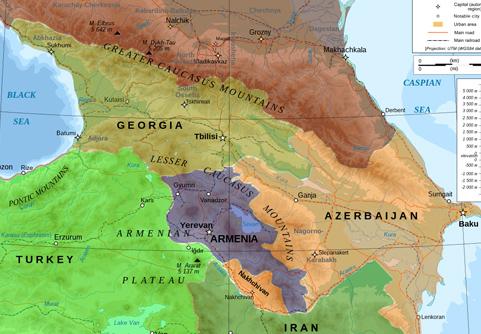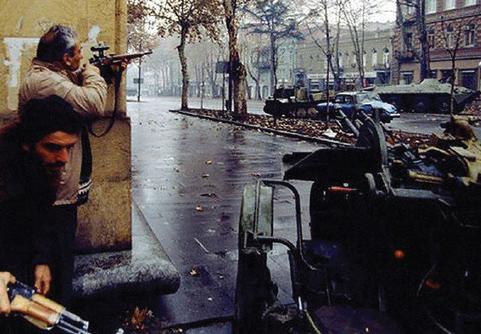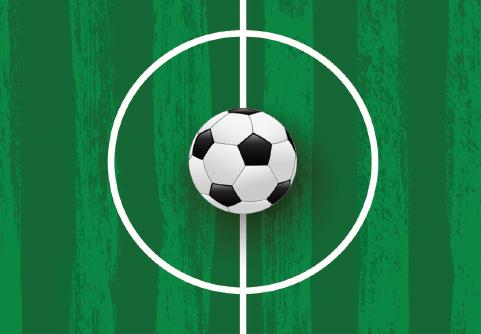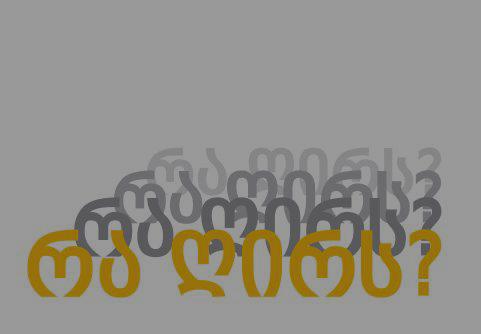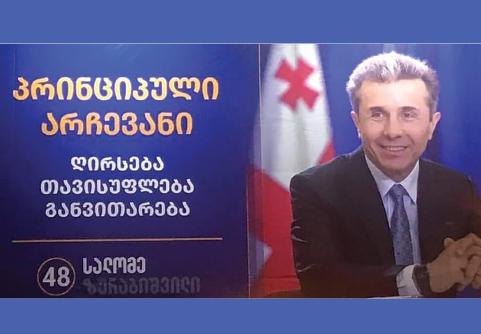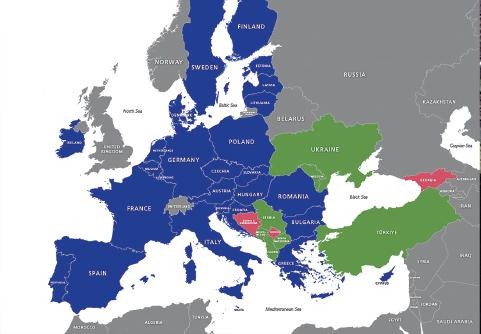
Author : Khatia Davlianidze

After the war launched by the Russian Federation against Ukraine in February 2022, the geopolitical situation in the world changed radically, affecting the EU's enlargement policy and opening a window of opportunity for states wishing to join.
As soon as this historic opportunity arose, Ukraine applied for membership of the European Union in February 2022, followed by Georgia and Moldova in March. According to the Council of Europe, unlike the two members of the Associated Trio, Ukraine and Moldova, Georgia was not granted candidate status for EU membership. While recognizing Georgia's European Perspective, the Council listed 12 points to be met before candidate status could be granted.
The granting of candidate status to a state is a key stage, as only after it is granted can accession negotiations begin. It implies that the prospect of membership will be put on the agenda only if the country fulfils the relevant conditions.
Thanks to many years of successful Georgian diplomacy, Georgia, which is located in the South Caucasus and has no land border with the European Union, has managed to find itself alongside Ukraine and Moldova. The current Georgian government has squandered this achievement and taken a step backwards on the road to European integration.
Granting Georgia candidate status would be an important incentive for the government to carry out fundamental reforms. The status is also a prerequisite for improving political stability and security. In addition to the possibility of development and modernization, it also implies increased financial support from the European Union.
Candidate status would have made Georgia attractive for investment, which would have contributed greatly to the gradual elimination of economic problems and the growth of citizens' welfare. This would be a kind of opportunity to significantly increase the political and economic contrast between the territories controlled by the Georgian authorities on the one hand and the Russian-occupied territories that Tbilisi cannot control temporarily on the other, making the country more attractive to the Abkhaz and Ossetians.
Following the democratic setback in Georgia, Brussels decoupled the former Soviet republics in the European integration process, and Georgia found itself alongside Bosnia and Herzegovina.
In 2003, at the Thessaloniki European Council, Bosnia and Herzegovina was named as a potential candidate for European Union membership, along with other Western Balkan countries. In February 2016, Bosnia and Herzegovina applied for membership in the European Union. In 2019, the European Commission published its opinion on the application and the country was given 14 key priorities before being granted candidate status.[SB1]
The Dayton Peace Agreement established the Republic of Srpska and the Bosniak-Croat Federation (comprising 10 cantons) on the territory of Bosnia and Herzegovina. Political power in the country is shared between Bosniaks, Serbs, and Croats. Ethno-nationalist conflicts between the leaders of the three ethnic groups and political parties prevent state institutions from functioning properly, making Bosnia dysfunctional.
Bosniak, Serb, and Croat leaders have effectively seized power, and their common goal is to consolidate mono-ethnic control over state institutions, ultimately undermining the capacity for checks and balances. Along with dysfunctional political institutions, the threat of state collapse is evident. The leader of the Republic of Srpska, Milorad Dodik, supports the withdrawal of the Republic of Srpska from Bosnia and Herzegovina and reunification with Serbia. Dodik openly opposes the country's integration into NATO and wants to host a Russian military base in the Republic of Srpska. He planned to hold a referendum on secession from Bosnia and Herzegovina in 2018, but due to harsh criticism and pressure from the West, the referendum did not take place.
In September 2021, the Parliament of the Republic of Srpska voted for beginning the work on severing ties with the armed forces of Bosnia and Herzegovina, the Supreme Court, and the tax administration. According to Dodik, his ambitions were thwarted by Russia's invasion of Ukraine, but only temporarily. The threat of Bosnia and Herzegovina's disintegration is real, and it could go from a dysfunctional state to a failed one at any moment.
In October 2022, the European Commission recommended that Bosnia and Herzegovina be granted candidate status for the European Union.
Georgia's ruling party bears responsibility for the fact that the state, which for many years was a leader among the members of the Associated Trio and whose progress was evident to all, found itself first next to Bosnia and Herzegovina and then fell far behind even that country, which is one of the clearest examples of a dysfunctional state.
Russia's full-scale war in Ukraine opened a window of opportunity for countries wishing to join the European Union, which was used by Moldova and Ukraine, while the Georgian authorities missed the historic opportunity.
While new opportunities for legal and institutional rapprochement with the EU are gradually opening up for the two members of the Associated Trio, Georgia needs to regain the EU's confidence and fulfil its 12 points.
There have been only two cases in the history of the European Union where a wave of enlargement has affected only one state – Greece in 1981 and Croatia in 2013. Georgia does not have one or more supporters in the European Union like those two states, so it will not be able to open the EU's doors on its own.
Albania is a prime example of the EU not considering the accession of a single state. Its European prospects were linked to those of its neighbor, North Macedonia. With Bulgaria blocking accession negotiations between the EU and Skopje, the possibility of opening the EU's doors to Albania on its own is not being considered, delaying its accession process.
Achieving candidate status would be an opportunity for Georgia to increase pressure on the ruling government, both from its people and from the European Union, which would ensure fundamental reforms. Georgia has been significantly set back on the path to European integration by being removed from the Associated Trio and paired with a problematic state where the political leaders themselves doubt the legitimacy of a state that could fail at any moment, where the parallel strengthening of sub-state institutions makes the system dysfunctional, and where there is no corresponding political will to develop and modernize the country. Following the European Commission's recommendation to grant candidate status to Bosnia and Herzegovina, it is clear that, in the eyes of the European Union, Bosnia and Herzegovina deserves to be in the European Union more than Georgia.
Failure to obtain candidate status, falling out of the Associated Trio and being placed behind Bosnia and Herzegovina, for which the Georgian government is responsible, means less political stability, less security, less protection, less development, less reform, less progress, less financial support, less investment, less prosperity...

